3-Day Family Sightseeing and Culinary Journey in Sicily, Italy
Sicily, Italy
3 days
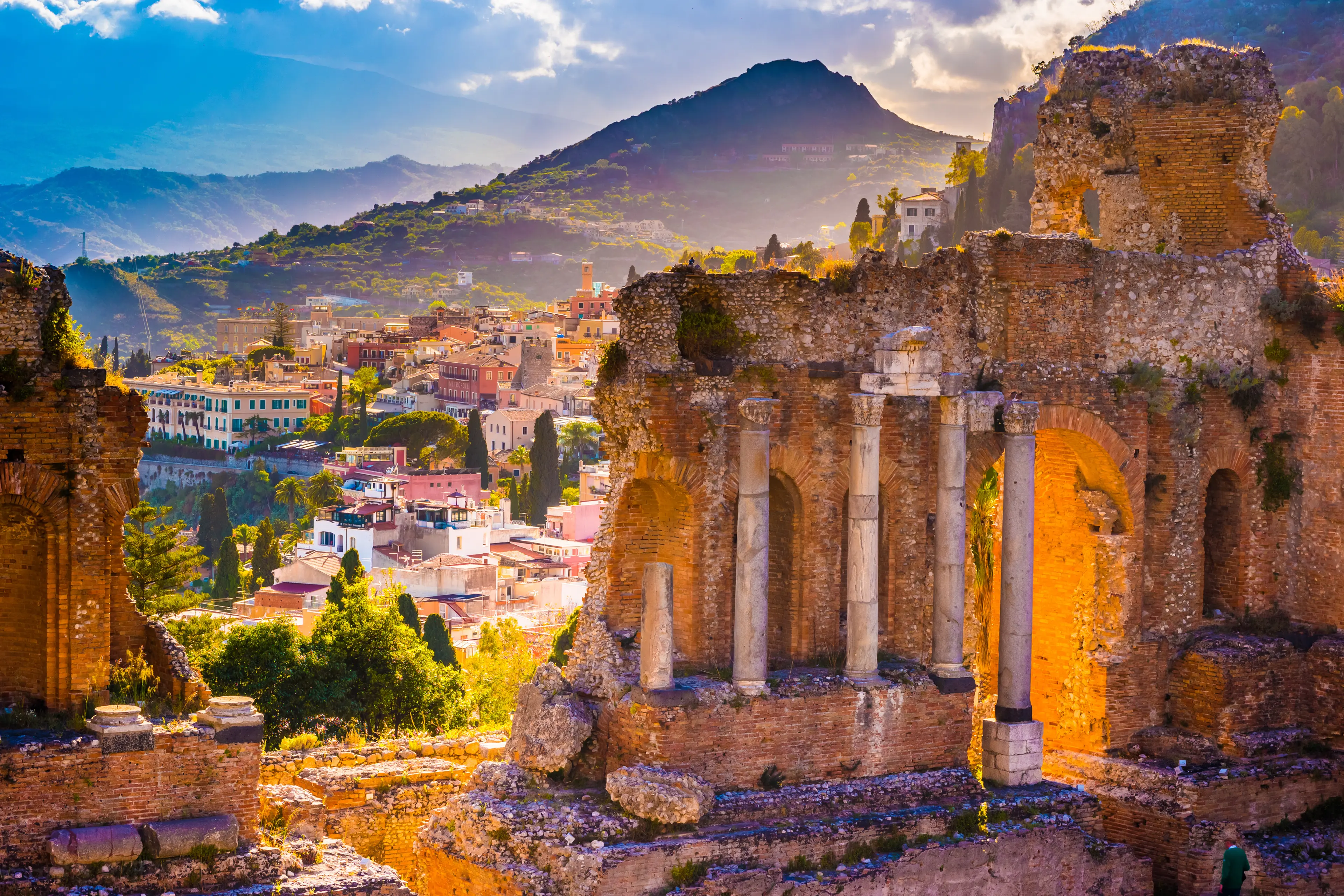
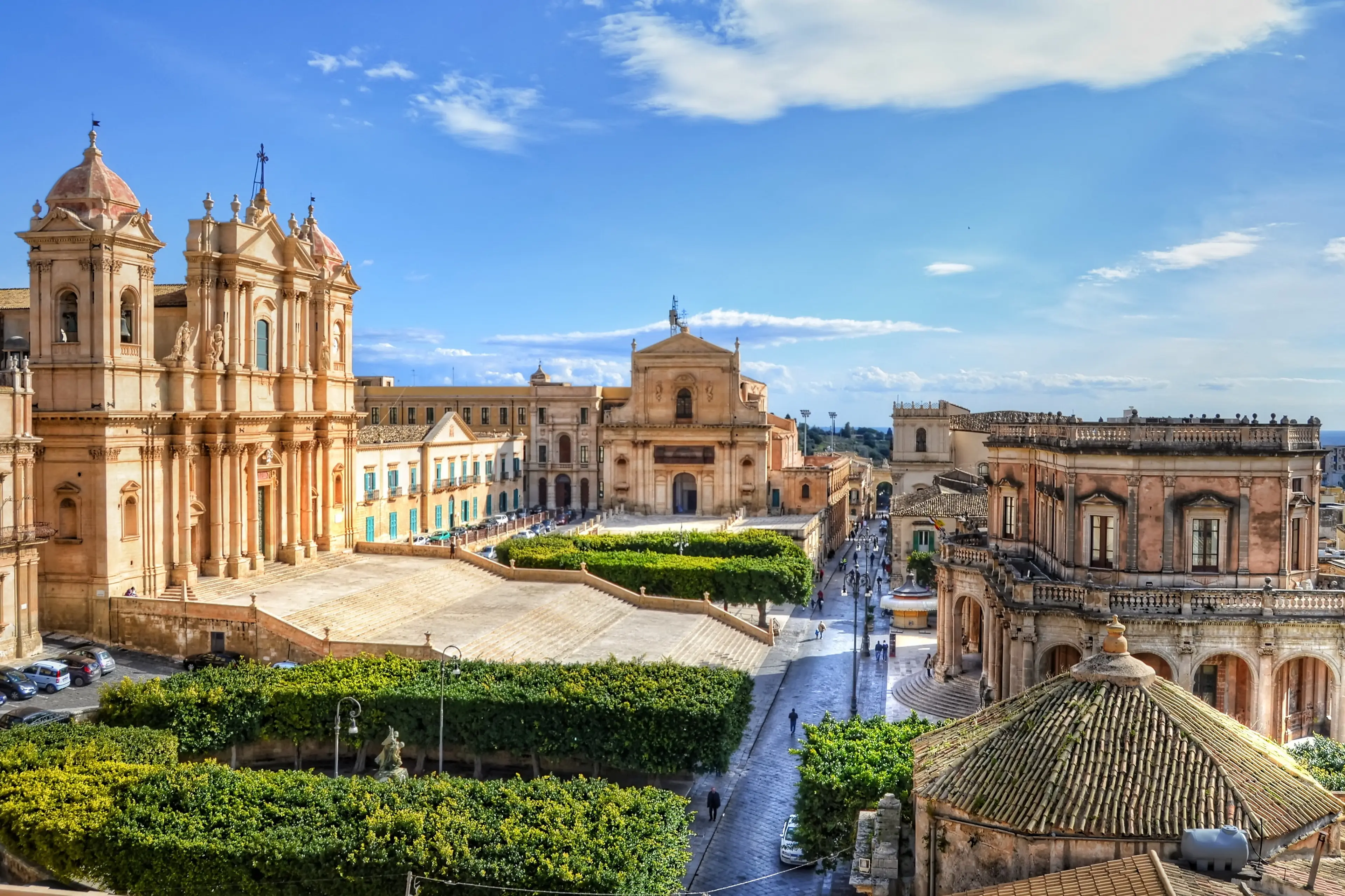
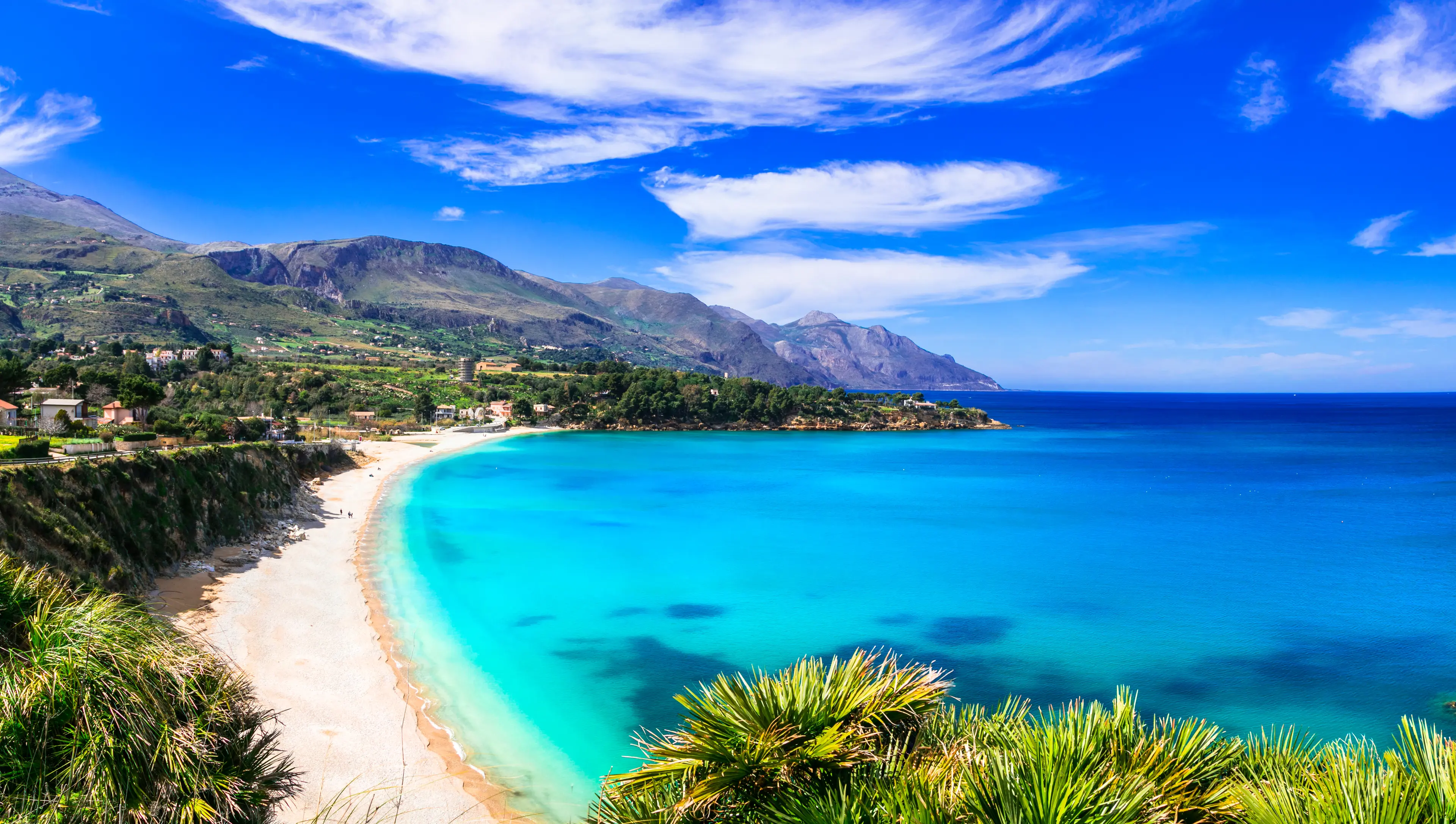

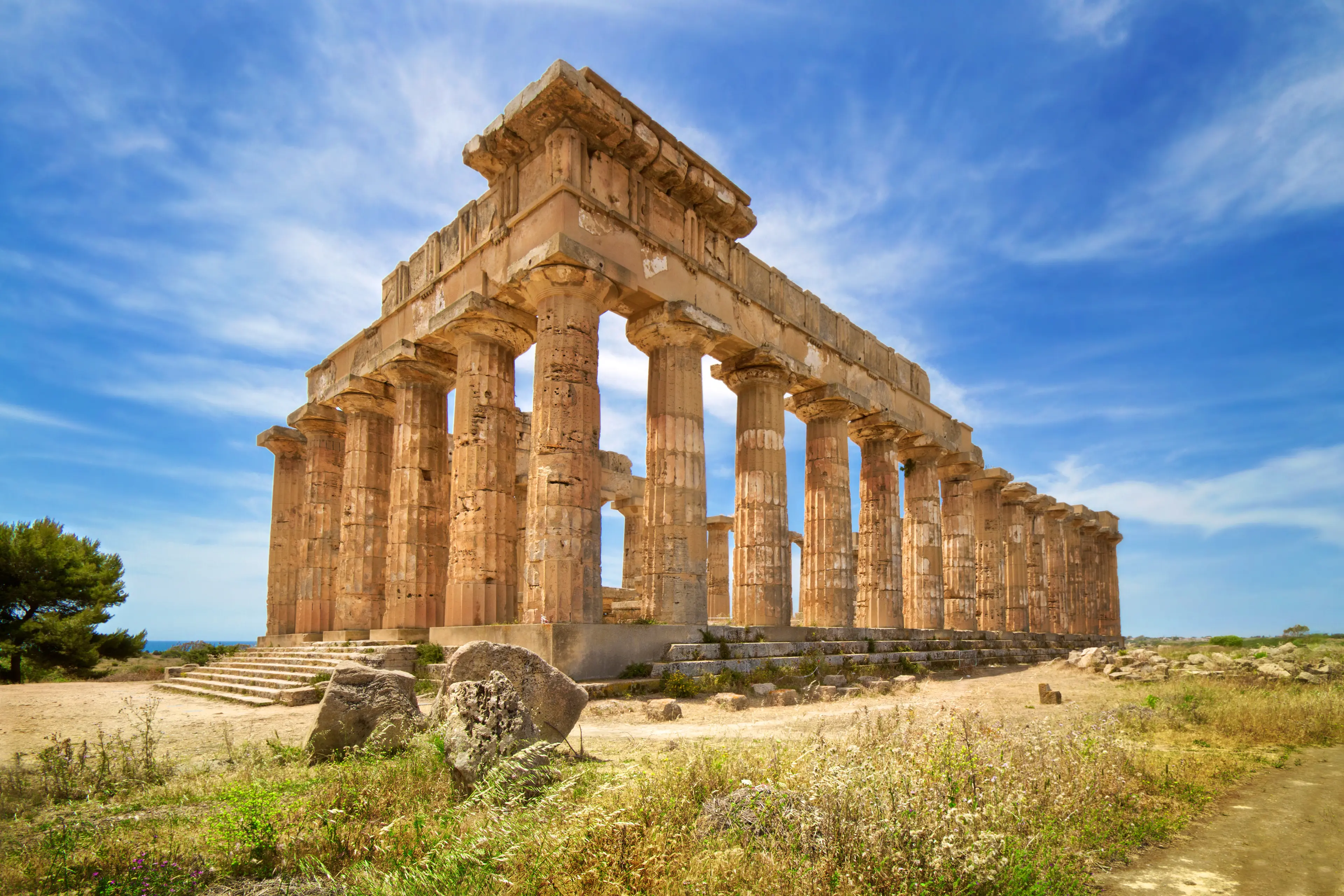
About Sicily, Italy
Experience the enchanting allure of Sicily, Italy's largest island, rich in history, culture, and gastronomy. Explore the vibrant city of Palermo, with its stunning palaces and churches, or the ancient Greek temples of Agrigento. Marvel at the breathtaking views from Taormina, perched on a cliff overlooking the sea. Visit the majestic Mount Etna, Europe's highest active volcano. Indulge in Sicilian cuisine, famous for its seafood, pastries, and wines. Enjoy the beautiful beaches of Cefalù and the unique landscape of the Valley of the Temples. Sicily offers a blend of unique experiences, from the bustling markets of Catania to the serene vineyards of Marsala. Discover Sicily, a land of contrasts and surprises, where the past meets the present in a captivating dance.
3-Day Itinerary
Day 2
Discovering Agrigento and Scala dei Turchi
Morning
Start your second day with a visit to the Valley of the Temples in Agrigento. This UNESCO World Heritage site is one of the most outstanding examples of Greater Greece art and architecture.
Lunch
Have lunch in Agrigento, where you can try some traditional Sicilian dishes.
Afternoon
In the afternoon, visit the beautiful Scala dei Turchi, a white cliff overlooking the sea. Its unique shape and color make it a must-see attraction.
Dinner
Enjoy a dinner in a local restaurant, where you can try some Sicilian wine and traditional dishes.
Evening
End your day with a relaxing walk on the beach, enjoying the sound of the waves and the starry Sicilian sky.
Day 3
Experiencing Palermo
Morning
On your last day, visit the vibrant city of Palermo. Start with a visit to the Palermo Cathedral and the Royal Palace.
Lunch
Have lunch in one of the local trattorias in Palermo, where you can try some traditional Sicilian street food.
Afternoon
In the afternoon, explore the colorful Markets of Palermo, where you can buy local products and souvenirs.
Dinner
For your last dinner in Sicily, choose a restaurant that offers a panoramic view of the city. Try some traditional Sicilian desserts, like cannoli or cassata.
Evening
End your Sicilian journey with a relaxing walk in one of Palermo's beautiful parks or along the city's waterfront.
Attractions in Itinerary (13)

1Syracuse
A historic city in Sicily, known for its rich Greek history, culture, amphitheatres, and architecture.
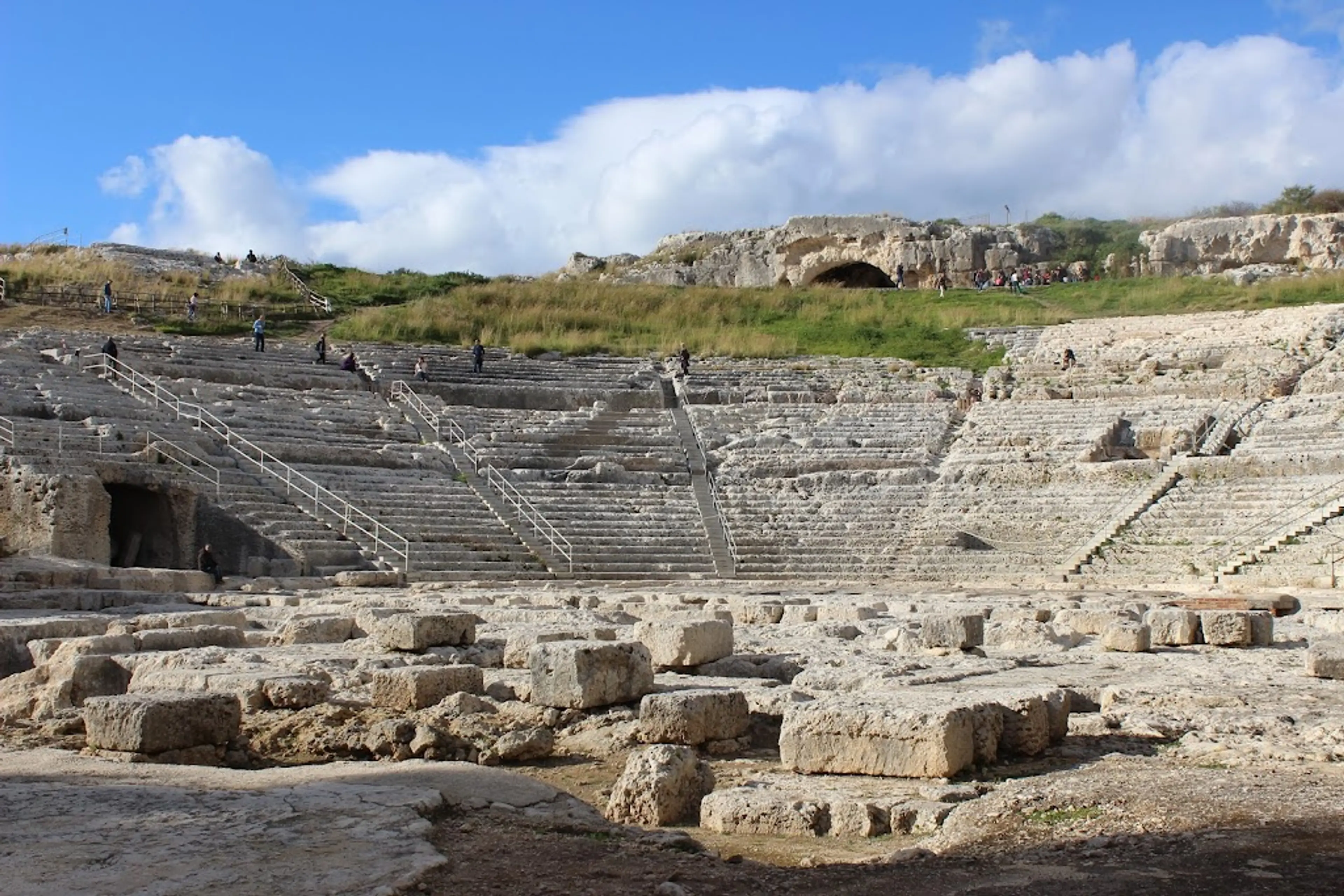
2Archaeological Park
A park that houses several important ancient ruins, including a Greek theatre and Roman amphitheatre.

3Greek Theatre
One of the best preserved ancient Greek theatres, still used for performances today.
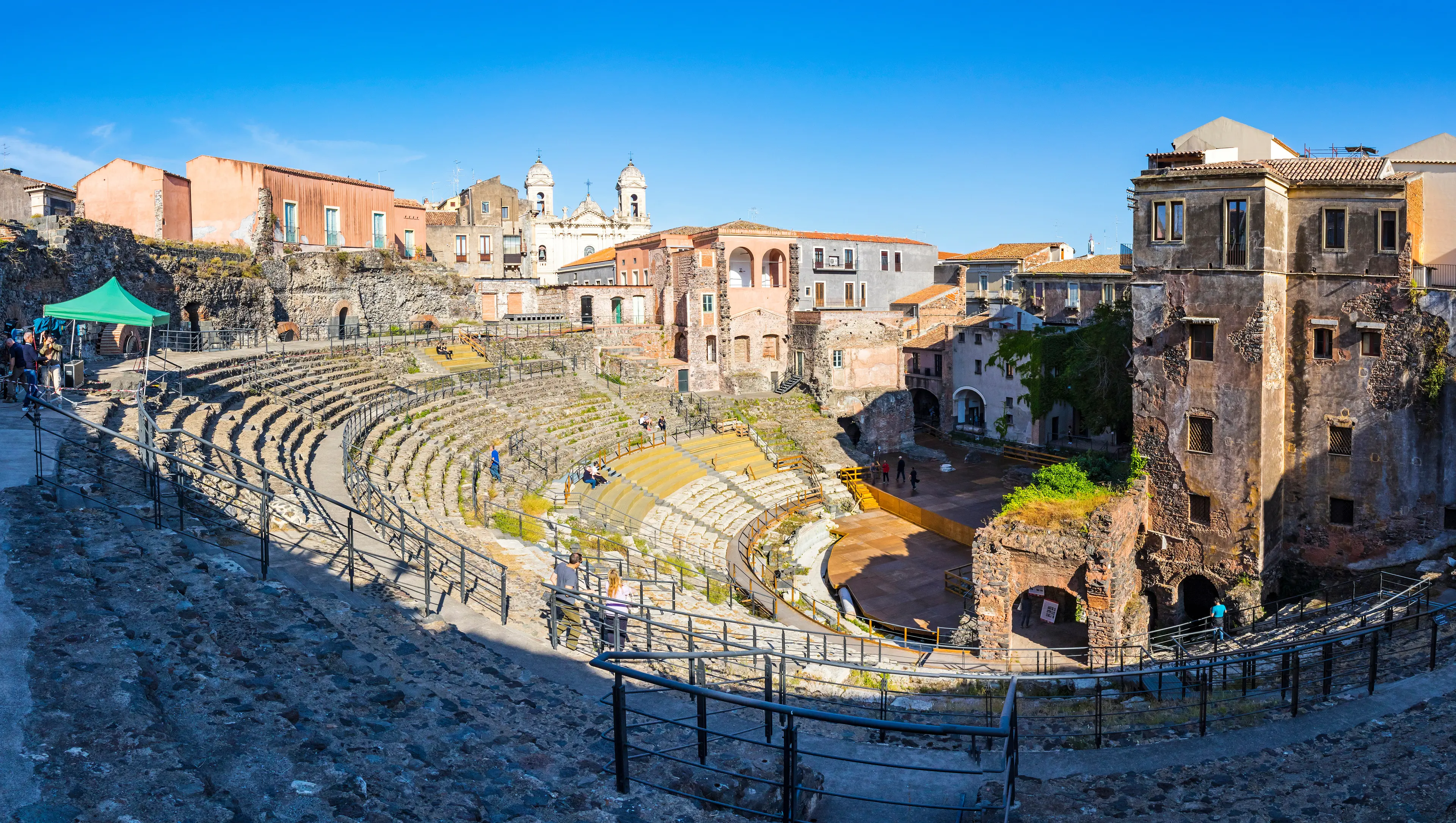
4Roman Amphitheatre
An ancient Roman amphitheatre used for gladiatorial contests and other spectacles.

5Ear of Dionysius
A limestone cave carved out of the Temenites hill, with a shape that resembles a human ear.

6Ortigia
A small island which is the historical centre of the city of Syracuse, Sicily. The island, also known as the Città Vecchia (Old City), contains many historical landmarks.

7Cathedral of Syracuse
A historic cathedral that incorporates the remains of a Greek temple.
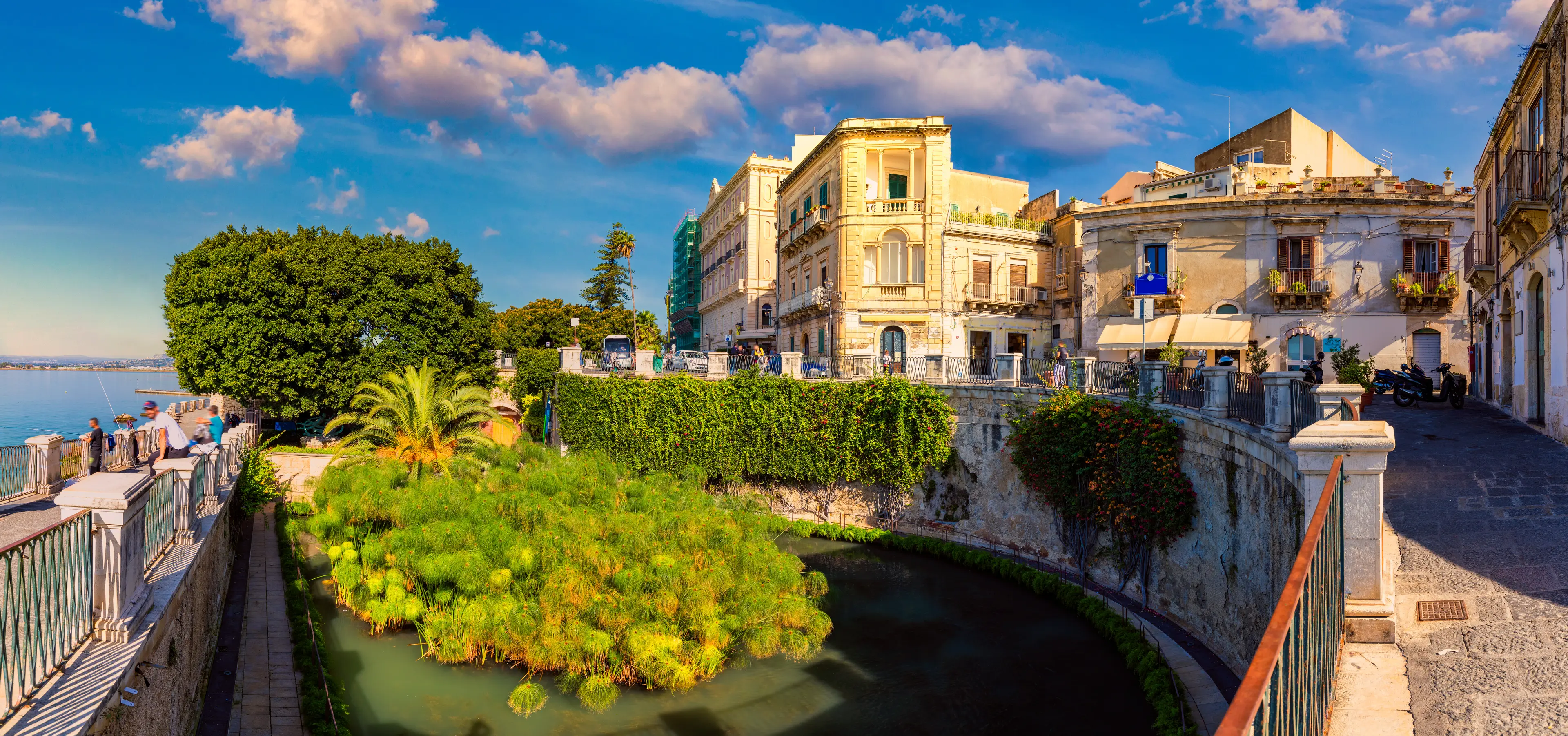
8Fountain of Arethusa
A legendary fresh water spring on the island of Ortigia.

9Valley of the Temples
An archaeological site in Agrigento, Sicily, southern Italy. It is one of the most outstanding examples of Greater Greece art and architecture.
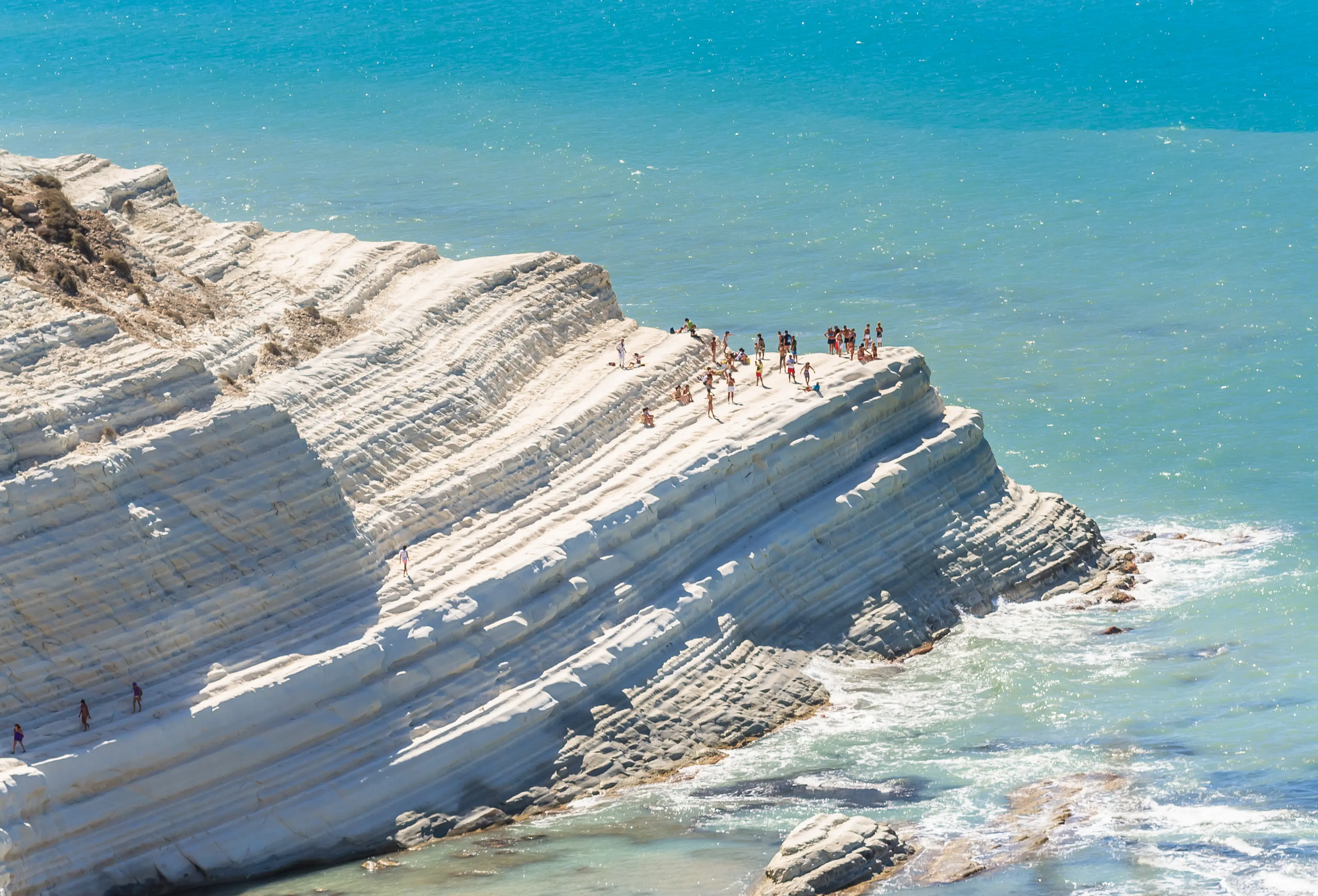
10Scala dei Turchi
A rocky cliff on the coast of Realmonte, near Porto Empedocle, southern Sicily, Italy. The Scala is formed by marl, a sedimentary rock with a characteristic white color.

11Palermo Cathedral
The cathedral church of the Roman Catholic Archdiocese of Palermo, located in Palermo, Sicily, southern Italy.

12Royal Palace
A palace in Palermo, which is the seat of the regional parliament of Sicily.
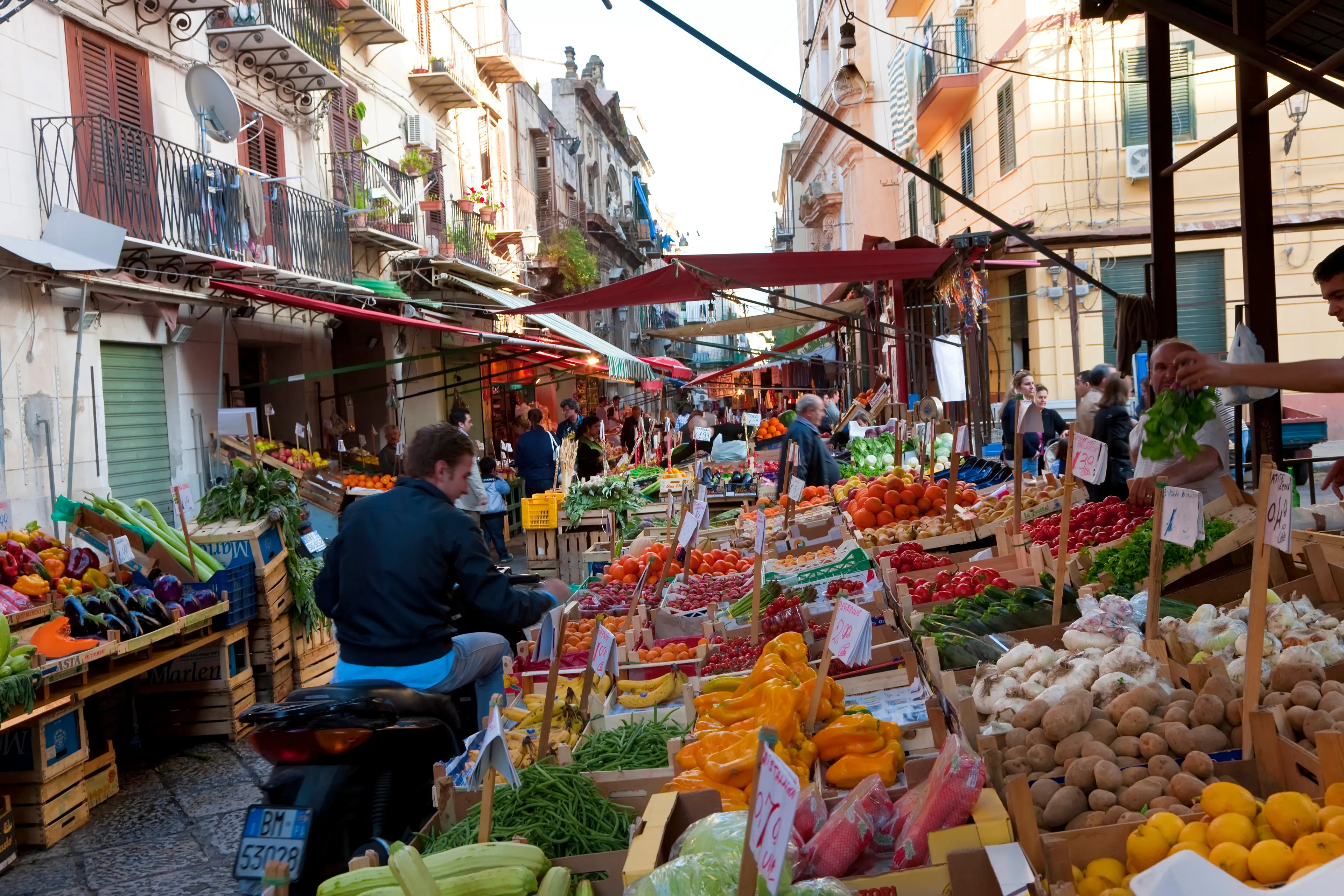
13Markets of Palermo
Traditional street markets in Palermo, known for their vibrant atmosphere, fresh produce, and local delicacies.
Local Food and Drinks (11)

Arancini
A popular Sicilian street food, Arancini are deep-fried rice balls filled with ragu, mozzarella, and peas. They are a must-try for any food lover visiting Sicily.

Cannoli
Cannoli are tube-shaped shells of fried pastry dough, filled with a sweet, creamy filling usually containing ricotta. They are one of the most famous Sicilian desserts.

Granita
Granita is a semi-frozen dessert made from sugar, water and various flavorings. In Sicily, it's often consumed for breakfast with a brioche.

Pane e Panelle
Pane e Panelle is a traditional Sicilian sandwich made with chickpea fritters. It's a common street food in Palermo, the capital of Sicily.

Pasta alla Norma
Pasta alla Norma is a classic Sicilian dish made with tomatoes, fried aubergines, grated ricotta cheese, and basil. It's named after the opera Norma by the Sicilian composer Vincenzo Bellini.

Caponata
Caponata is a Sicilian eggplant dish consisting of a cooked vegetable salad made from chopped fried eggplant and celery seasoned with sweetened vinegar, capers, olives, and tomatoes.

Sfincione
Sfincione is a type of pizza that originated in Sicily. Unlike the more familiar Neapolitan pizza, it's typically thick crust with tomato, onions, anchovies, and often sprinkled with breadcrumbs.

Pasta con le Sarde
Pasta con le Sarde is a traditional Sicilian dish made with sardines, wild fennel, raisins, saffron, and pine nuts. It's a perfect blend of sweet and savory flavors.

Cassata Siciliana
Cassata Siciliana is a traditional sweet from Sicily, Italy. It's a round sponge cake moistened with fruit juices or liqueur and layered with ricotta cheese and chocolate chips.

Zibibbo
Zibibbo is a white wine produced in the Sicilian island of Pantelleria. It's known for its sweet taste and aromatic flavor.

Pani ca Meusa
Pani ca Meusa is a Sicilian delicacy, particularly in Palermo. It's a sandwich with spleen and lung of veal that have been boiled and then fried.
Best time to visit
The best time to visit Sicily, Italy, is during the spring (April to June) and fall (September and October). During these periods, the weather is pleasant and the tourist crowds are smaller. The island's natural beauty is in full bloom in spring, while the fall offers a rich palette of colors and the grape harvest season. These seasons also offer comfortable temperatures for exploring the historical sites, enjoying the beaches, and participating in outdoor activities.
How to get around
Car Rental
Renting a car is a popular choice for getting around Sicily. It offers the most flexibility and convenience, especially for those who plan to explore the island's more remote areas. Keep in mind that driving in Sicily can be challenging due to narrow roads, aggressive drivers, and limited parking in cities.
Public Bus
Public buses are a reliable and affordable way to travel around Sicily. The island has an extensive bus network that connects most towns and cities. Buses are usually punctual and offer a more local experience.
Train
Trains in Sicily are a scenic and relaxing way to travel. The island's rail network is quite extensive, connecting most major cities and some smaller towns. However, trains can be slower than buses or cars, especially on less popular routes.
Taxi
Taxis are readily available in Sicily's cities and larger towns. They are a convenient but more expensive option for short trips. Always ensure the meter is running to avoid overcharging.
Ridesharing
Ridesharing services like Uber are available in Sicily, particularly in larger cities like Palermo and Catania. This can be a convenient and cost-effective way to get around, especially if you're not comfortable driving.
Ferry
Ferries are a great way to travel between Sicily and the surrounding islands, such as the Aeolian Islands, Pantelleria, and Lampedusa. They offer a unique and scenic way to explore the region.
Bicycle
Cycling is a popular way to get around in Sicily, especially in the countryside and along the coast. Many towns offer bicycle rentals. However, be aware that Sicily's hilly terrain can make cycling challenging.
Foot
Walking is the best way to explore Sicily's cities and towns. Many historic centers are pedestrian-only, and walking allows you to fully appreciate the architecture, culture, and atmosphere of the island.
Important information
Currency€ EUR
Time zoneUTC+1
Driving sideRight
Emergency phoneAmbulance: 112, 118; Fire: 112, 115; Police: 112, 113;
Drinking waterYes, but some opt for bottled water
Power sockets
Voltage230 V
Things to know about Sicily, Italy as a first time visitor
1
Sicily has a Mediterranean climate, with hot, dry summers and mild, wet winters. Average summer temperatures range from 77-86°F (25-30°C) and winter temperatures from 50-59°F (10-15°C).
2
The official language is Italian, but Sicilian, a distinct language, is also widely spoken. English is understood in tourist areas, but less so in rural areas.
3
The currency in Sicily is the Euro (€). Credit cards are widely accepted, but it's a good idea to carry some cash for smaller establishments or markets.
4
Tipping is not mandatory in Sicily, but it is appreciated. A tip of around 10% is standard in restaurants if service charge is not included.
5
Sicily is generally safe for tourists, but like any destination, it's important to be aware of your surroundings and take precautions against pickpocketing in crowded areas.
6
Public transportation in Sicily is reliable, but can be slow. Renting a car can be a good option for exploring more remote areas, but be prepared for challenging driving conditions in some parts.
7
Sicily operates on Central European Time (CET) and observes daylight saving time.
8
The electrical voltage in Sicily is 220-240 volts, and the plug type is F or L. You may need a converter or adapter if your devices use a different standard.
9
Tap water in Sicily is generally safe to drink, but bottled water is widely available and often preferred due to the taste.
10
Sicily has a rich culinary tradition. Be sure to try local specialties like arancini (rice balls), cannoli (sweet pastries), and fresh seafood.
11
Sicilian wines are renowned worldwide. Don't miss the chance to visit a local winery or try a glass of Nero d'Avola or Marsala.
12
Siesta is observed in Sicily, particularly in smaller towns. Many shops and businesses close in the afternoon, typically between 1pm and 4pm.
13
Sicily has a dress code that leans towards the conservative, especially in churches and other religious sites. It's respectful to cover shoulders and knees.
14
Pharmacies in Sicily are marked by a green cross. They are well-stocked and pharmacists often speak English.
15
Emergency numbers in Sicily are 112 for general emergencies, 118 for medical emergencies, and 115 for fire emergencies.
16
Sicily has a smoking ban in public places, including bars and restaurants. However, some places have designated smoking areas.
17
It's customary to greet people with a handshake. Friends and family often greet each other with a kiss on both cheeks.
18
Sicilians are known for their hospitality and warmth. Don't be surprised if you're invited into a local's home for a meal.
19
Sicily has a slower pace of life compared to northern Italy. Don't rush, take your time to enjoy the scenery and the local culture.
20
Always ask for permission before taking photos of people or private property. It's considered respectful and polite.
Basic Italian to know as a first time visitor
English phrase | Native phrase | Pronunciation | When to use it |
|---|---|---|---|
Hello | Ciao | chow | Greeting someone |
Goodbye | Arrivederci | ah-ree-veh-der-chee | Leaving someone |
Please | Per favore | pehr fah-voh-reh | Asking for something |
Thank you | Grazie | graht-see-eh | Showing appreciation |
Yes | Sì | see | Agreeing with someone |
No | No | no | Disagreeing with someone |
Excuse me | Mi scusi | mee skoo-zee | Getting someone's attention |
I'm sorry | Mi dispiace | mee dee-spya-che | Apologizing |
Do you speak English? | Parla inglese? | par-la in-gle-se | Asking if someone speaks English |
I don't understand | Non capisco | non ka-pee-sko | When you don't understand what's being said |
Where is...? | Dove è...? | doh-veh eh | Asking for directions |
Bathroom | Bagno | bah-nyo | Looking for a restroom |
Help | Aiuto | ah-yoo-to | In case of emergency |
Food | Cibo | chee-bo | Looking for something to eat |
Water | Acqua | ah-kwa | Looking for something to drink |
Good morning | Buongiorno | bwon-jor-no | Greeting someone in the morning |
Good evening | Buonasera | bwo-na-se-ra | Greeting someone in the evening |
Good night | Buonanotte | bwo-na-not-te | Saying goodnight |
How much does it cost? | Quanto costa? | kwan-toh kos-ta | Asking for the price |
I would like... | Vorrei... | vor-rei | Expressing a desire for something |
Packing List
Clothing
Lightweight clothing
Underwear
Socks
Swimwear
Comfortable walking shoes
Sandals
Sunglasses
Hat for sun protection
Light jacket or sweater for cooler evenings
Sleepwear
Toiletries
Toothbrush and toothpaste
Shampoo and conditioner
Body wash or soap
Deodorant
Razor and shaving cream
Sunscreen
Lip balm with SPF
Makeup and makeup remover
Hairbrush or comb
Travel-sized laundry detergent
Travel documents and essentials
Passport
Driver's license or ID card
Credit and debit cards
Cash in local currency
Travel insurance documents
Hotel and car rental reservations
Emergency contacts and important addresses
Electronics and gadgets
Smartphone and charger
Headphones
Camera and charger
Universal power adapter
Portable power bank
Tablet or e-reader for entertainment
Miscellaneous items
Travel guidebook for Sicily
Italian phrasebook or language app
Reusable water bottle
Snacks for travel
Travel pillow and blanket
Earplugs and eye mask
First aid kit
Hand sanitizer and disinfecting wipes
Weather Conditions
Sicily, Italy, is known for its Mediterranean climate, which means it experiences hot, dry summers and mild, wet winters. If you're planning a trip, it's essential to consider the weather to make the most of your visit. If you're a sun-seeker, the best time to visit Sicily is during the summer months, from June to August. During this period, temperatures can reach up to 86°F (30°C), perfect for beach activities and exploring the island's beautiful coastline. However, it's worth noting that this is also the peak tourist season, so expect crowded attractions and higher prices. For those who prefer milder temperatures, spring (April to June) and autumn (September to November) are ideal. During these seasons, temperatures typically range between 59°F (15°C) and 77°F (25°C), offering comfortable conditions for sightseeing and outdoor activities like hiking or cycling. Winter in Sicily, from December to February, is relatively mild with temperatures usually between 50°F (10°C) and 59°F (15°C). However, this season also sees the most rainfall, so pack a waterproof jacket if you plan to visit during this time. Despite the rain, winter can be a great time to visit if you want to avoid crowds and enjoy the island's cultural attractions at a leisurely pace. Regardless of when you visit, always remember to stay hydrated, especially during the summer months. The Mediterranean sun can be intense, so don't forget to pack sunscreen, a hat, and sunglasses to protect yourself from the sun's rays. Lastly, if you're planning to visit Mount Etna, be prepared for cooler temperatures. Even in summer, temperatures at the summit can be significantly lower than at sea level, so bring a jacket or sweater. In conclusion, Sicily offers a range of weather conditions throughout the year, catering to different preferences. Whether you're a beach lover, an outdoor enthusiast, or a culture vulture, there's a perfect time for you to visit this stunning Italian island.
| Month | Hi / Lo (°C) | Weather Overview |
|---|---|---|
January | 15° / 8° | January is the coldest month in Sicily, with temperatures ranging from 8 to 15 degrees Celsius. It's a good time to visit if you prefer cooler weather and fewer crowds. |
February | 15° / 8° | February is still quite cool, with temperatures similar to January. It's a quiet time to visit, perfect for exploring the island's historic sites. |
March | 18° / 10° | March sees a slight increase in temperature, with highs of 18 degrees Celsius. The weather is pleasant for outdoor activities and sightseeing. |
April | 20° / 12° | April is a lovely time to visit Sicily, with temperatures ranging from 12 to 20 degrees Celsius. The island starts to bloom, making it a beautiful time for nature lovers. |
May | 25° / 15° | May offers warm temperatures, ranging from 15 to 25 degrees Celsius. It's an excellent time for beach activities and exploring the countryside. |
June | 30° / 20° | June marks the start of the summer season in Sicily, with temperatures reaching up to 30 degrees Celsius. It's a great time for beach holidays and water sports. |
July | 33° / 23° | July is the hottest month in Sicily, with temperatures soaring up to 33 degrees Celsius. It's perfect for sunbathing, swimming, and enjoying the vibrant nightlife. |
August | 33° / 23° | August is equally hot as July, making it a popular month for tourists. Expect crowded beaches and lively festivals during this time. |
September | 30° / 20° | September sees a slight drop in temperature, but it's still warm enough for beach activities. The crowds start to thin, making it a good time for a more relaxed holiday. |
October | 25° / 15° | October offers pleasant weather with temperatures ranging from 15 to 25 degrees Celsius. It's a great time to explore the island's historic sites and enjoy the local cuisine. |
November | 20° / 12° | November sees a further drop in temperature, but it's still comfortable for sightseeing. The island is quieter, offering a peaceful holiday experience. |
December | 18° / 10° | December is a cool month in Sicily, with temperatures ranging from 10 to 18 degrees Celsius. It's a good time to visit if you enjoy Christmas festivities and cooler weather. |
Did you know?
Places near by Sicily, Italy

Mount Etna
Active stratovolcano on the east coast of Sicily

Valley of the Temples
Well-preserved Greek temples and ruins

Stromboli
Active volcano and island with black-sand beaches

Amalfi Coast
Coastline known for its cliffside villages and rugged terrain

Pompeii
Ancient Roman city preserved by volcanic ash

Capri
Island known for its rugged landscape and upscale hotels

Vesuvius National Park
Park surrounding an active volcano

Positano
Cliffside village on the Amalfi Coast

Rome
Capital city known for its ancient ruins and art

Vatican City
Independent city-state enclaved within Rome